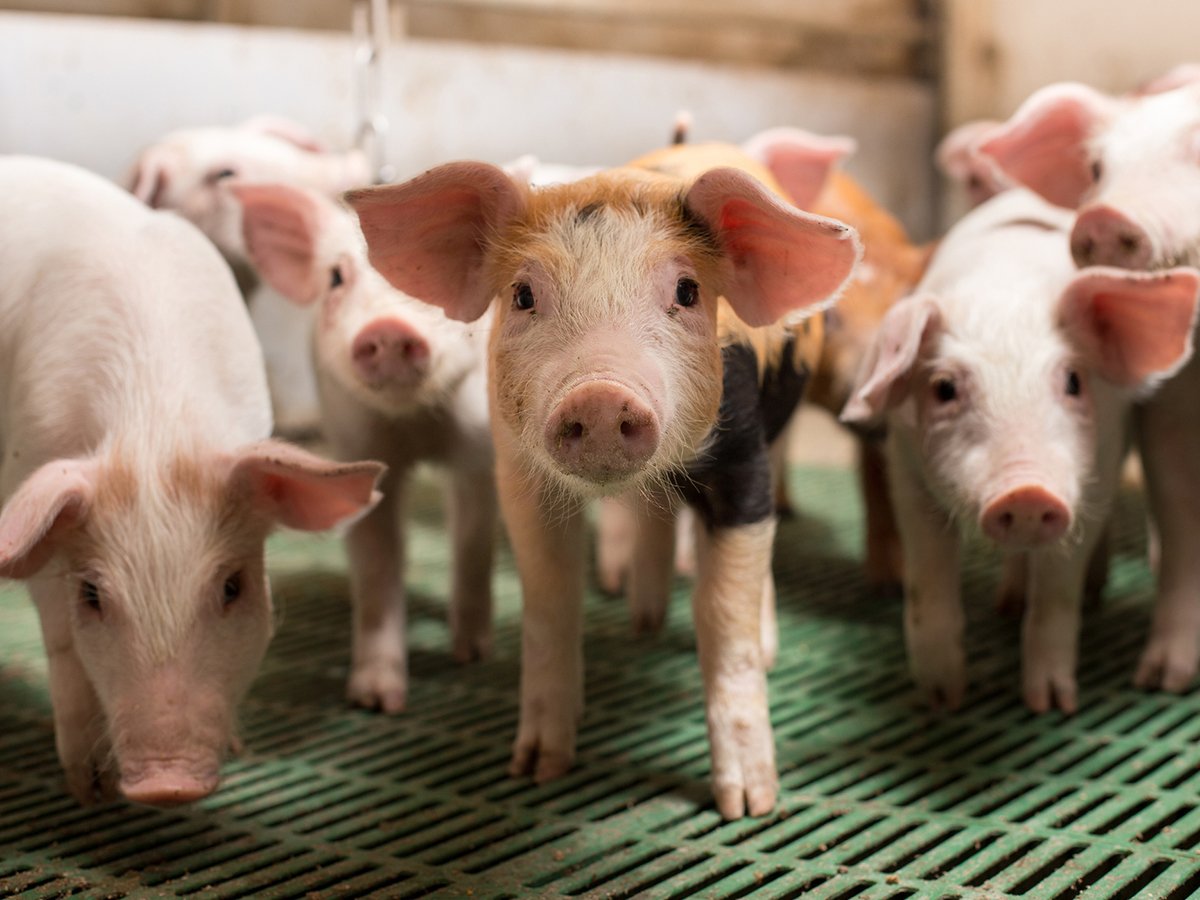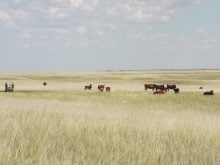HOUSTON, Texas — Animal activists may wear business suits, but their goal remains the same.
“Activism looks a lot different than it did in the Seventies and Eighties. It used to be very extreme,” said Hannah Thompson-Weeman of the Animal Agriculture Alliance, which monitors activists’ activities and supports the livestock and meat sector.
Groups like the People for the Ethical Treatment of Animals and others were not taken seriously in the early days when models appeared wearing lettuce bikinis to support animal rights, so groups adopted a more professional image.
Read Also

The Western Producer Livestock Report – October 9, 2025
Western Producer Livestock Report for October 9, 2025. See U.S. & Canadian hog prices, Canadian bison & lamb market data and sales insights.
“Make no mistake, their end game is the same. They just transitioned to this strategy,” she said at the International Livestock Congress held in Houston, Texas, from Feb. 28 to March 1.
Activists have become more engaged in the animal welfare conversation and often target large scale production practices like egg or pork production. Well-funded and media savvy, groups seek to stop using animals for meat, transportation or entertainment through legislation and public pressures.
“They are very well funded, very strategic, very socially savvy activist organizations that we are up against as an industry,” she said.
“No amount of education, engagement, farm tours are going to change their belief that what we are doing in animal agriculture is wrong.”
Activist organizations in the United States bring in about $500 million a year, mostly from donations.
“Of all this money they are bringing in, it is a minuscule amount, less than one percent that actually goes to on the ground helping animals in shelters or during disaster situations. The vast majority of those funds goes to lobbying, staffing and running campaigns,” she said
Groups like PETA, Animal Liberation Front, Humane Society of the United States, Mercy for Animals and Factory Farming Awareness Coalition promote veganism. They collaborate on projects where funds and staff move freely between the organizations.
The HSUS funds the Good Food Institute to promote “clean meat,” which has been cultured in a laboratory, or plant-based meat. HSUS has supported chefs who encourage people to eat less meat and put plant-based options on their menus. It is also working with high schools and college campuses to advocate plant-based diets.
Less than three percent of the U.S. population is vegan, but when the general public is looking for information it is difficult to sort through what is being presented through social media or other sources.
Considerable effort went into seeking legislative changes but the new trend is to go after corporations because the results are faster.
HSUS launched a major campaign against Costco to influence the company to offer cage free eggs.
An egg supplier in Pennsylvania was targeted in an undercover video but Costco said it would support the company. The pressure intensified and Costco agreed to supply cage-free eggs.
Between 2012 and 2013, many companies adopted similar policies due to public pressure but the stores struggle to find enough supply and sales of the more expensive specialty eggs are sluggish.
Cage-free production in the U.S. provides 12 to 15 percent of total supply. There are about 35 million cage-free layers, which is a large increase since 2014, but about 229 million birds are needed to meet demand.
Another trend among the more activist groups involves trespassing and break-ins on farms and plants.
For a time, activists were hired to get jobs on farms and then produce undercover videos. Farms are screening prospective employees better so now some activist groups break in and in some cases steal animals or do damage.
“They think they are doing the right thing and think if it plays out in the courts, they will be vindicated,” she said.
The livestock sector also has responsibilities. It has to be beyond reproach and not allow any lapse in welfare standards.
A farm can conduct self-audits and should be able to act quickly before things go wrong.
“Employees in plants and on farms are a huge vulnerability for our industry, so be very careful in hiring and training and making sure everyone has no excuse not to know the philosophy on animal care and what is appropriate and what to do if they have concerns,” she said.
The alliance advises farms to be transparent and develop an online presence on Facebook, have a website, join Twitter and Instagram and provide updates on actions taken.
It also suggested that farmers host open houses or provide virtual tours, be available to media and regularly meet with customers all the way up the food chain.















